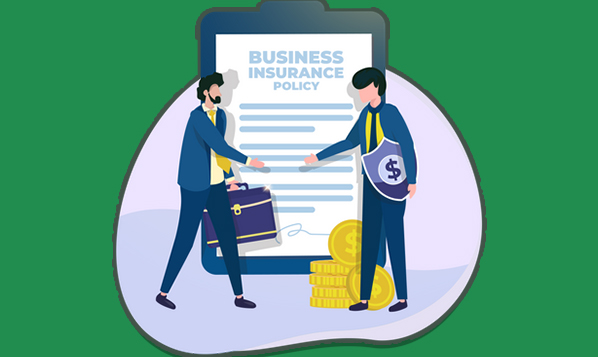Running a business is difficult enough without having to worry about incurring large losses due to unanticipated events. Some of the most frequent losses faced by business owners, including theft, worker injury, property damage, and business interruption, can be avoided with the help of commercial insurance. Obtaining the appropriate commercial insurance coverage can significantly impact a company’s ability to recover from catastrophic losses with minimal disruption to operations and financial losses.

Commercial insurance, also called business insurance is a coverage type that covers businesses from unforeseen losses like lawsuits, accidents, and natural disasters. It addresses risks to employees, property damage, and legal responsibility. Businesses evaluate their insurance needs in light of possible risks, which differ based on the nature and environment of their operations. Furthermore, to get coverage for their assets, businesses must be aware of the various forms of business insurance.
Types of Commercial Insurance
Certain insurance policies, like workers’ compensation, are mandated by federal regulations. Furthermore, some states might mandate that particular kinds of businesses obtain extra coverage kinds. Moreover, businesses often choose to protect themselves by obtaining additional insurance coverage beyond the legal requirements.
Seven typical categories of commercial insurance are as follows:
Commercial general liability insurance
All businesses should have some sort of commercial general liability insurance. Despite not offering complete protection from all hazards, it is still regarded as comprehensive insurance. Coverage for bodily injury, property damage, medical costs, libel, slander, lawsuit defense, and settlement bonds or judgments are all included in general liability.
Professional liability insurance
Professional liability insurance (PLI) is intended for companies that offer services, as opposed to general liability insurance, which is for any kind of business. Losses resulting from the rendered service are covered. It guards against costs associated with errors, carelessness, or malpractice.
Commercial property insurance
Businesses with substantial physical assets, such as furniture, signage, equipment, and inventory, are intended to use property insurance. It shields the company against losses from calamities like storms, fires, and theft. For example, damage to inventory, computers, furniture, or signage may be covered by property insurance.
Workers’ Compensation
If one of your employees sustains an injury at work, workers’ compensation insurance will cover them and provide benefits. If their injury prevents them from working, it will pay for their medical costs and assist with lost income. Your employees won’t be able to sue you in exchange for these benefits.
Products liability insurance
Product-related businesses, like manufacturers, wholesale distributors, and retailers, are the target market for product liability insurance. This coverage type covers a company from expenses related to harm or injury brought on by-products, like when a defective product causes physical harm or injury. A company may be forced to pay for pricey lawsuits if it does not have product liability insurance.
Commercial auto insurance
Every car used for work needs to be insured. If your passenger cars, vans, buses, tractor-trailers, or cargo are damaged or someone else is hurt, you will need insurance. Every state has a minimum insurance requirement. The driver’s driving history and the state of the vehicle are two examples of the many variables that can impact the cost of auto insurance.
Business interruption insurance
Policies for business interruption (or continuation) are a particular kind of insurance that is useful for businesses with physical locations, like manufacturing plants or retail stores. Business interruption insurance pays a company’s lost revenue when regular operations are interfered with. A civil authority clause is often included in property or business owners’ policies, outlining compensation in case of government action.
Who Needs Commercial Insurance
To mitigate the financial burden of potential liability claims and property damage during regular business hours, small businesses require commercial insurance. A small business without commercial insurance may suffer catastrophic financial losses due to an unanticipated accident or lawsuit.
To cover yourself, your company, and your employees, you must carry a certain amount of commercial insurance in the majority of states. Your industry may also mandate that you carry business insurance, depending on the nature of your work.
How Much Does Commercial Insurance Cost
Commercial insurance is usually very reasonably priced, especially for low-risk businesses. The average monthly premiums for the best insurance plans are as follows:
- General liability insurance: $42 for a month
- Professional liability and E&O: $61 monthly
- Workers’ compensation: $45 monthly
A few different factors are taken into account when calculating policy costs, including:
- The number of employees.
- Industry danger.
- Limitations on coverage.
- Revenue per year claims history.
How to Get Commercial Insurance
Before getting coverage, you should first speak with a licensed insurance provider or agent. The representative can offer quotes for policy premiums and talk about insurance options based on your company’s needs. You can discuss insurance costs and ask any questions you may have about the various policy options with your agent.
If you are aware of the type of insurance you require, you can obtain quotes from reputable providers by completing the free online application available. Furthermore, online purchases of coverage result in the delivery of an insurance certificate the next day.

